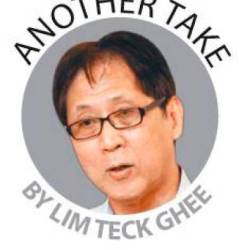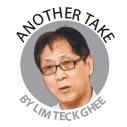AMONG international media engaged in China news reporting, CNN and BBC stand out as the most prominent in producing anti-China stories and analyses.
Of late, Nikkei Asia which is a part of Japan’s Nikkei Inc media empire appears bent on giving these two organisations a run for their money as to which can produce the most mischievous and partisan commentary to accompany their China news.
In its China closeup column, Nikkei Asia published a lurid account of a knife attack incident near Shanghai.
Written by its Tokyo-based senior staff and editorial writer, the article led with the sensationalist title “Tragedy shows China’s anti-Japan social media fire burns out of control: Other stabbings reflect a society that cannot vent its social and economic frustrations”.
In its effort to generate propaganda against China and the Chinese, the article linked what is a tragic and isolated incident to the “anti-Japan and anti-US trend seen as an outgrowth of China’s “wolf warrior” diplomacy toward Japan, the US and Europe”.
To increase the volume of anti-China news, Nikkei Asia’s sister news organisation – the Financial Times (FT) – came out with a similar story three days later with the title, “China stabbing attacks raise concerns of growing social tensions. Economic doldrums, unemployment and isolation could be playing into crime wave, analysts say”.
Despite its claim to be an “independent provider of quality journalism”, the Nikkei news empire is far from being independent.
Its political alignment has been variously described as center-right, conservative liberalism and conservative.
What it stands for is to wave the Japanese flag of nationalism and militarism in support of the Liberal Democratic party which has led the government since 1955 in what is virtually a de facto one-party state that few among its western supporters will admit to.
It also has a long-standing institutionalised relationship with the national government to benefit itself and Japan’s big business.
According to reporter Hiroko Tabuchi of the New York Times in 2022, the Nikkei’s purchase of the FT was “worrying” as “(the) Nikkei is basically a PR machine for Japanese business it initially ignored the 2011 Olympus accounting scandal (which FT broke). Nikkei has also hardly covered the Takata airbag defect; almost no investigative work on that issue whatsoever. Nikkei is Japan Inc.”
Breaking the anti-China News
Besides the absence of independence in reporting on domestic affairs and business developments in Japan, the paper is engaged in conditioning the mindset of its readership and Japanese leadership against China and in support of the ruling party’s military alliance with the US.
An examination of the publication’s China close-up articles during the last nine years since the column first appeared reveals an unremitting and often unrestrained critique of China’s politics, economy and society with responsibility pinned on President Xi Jinping and the communist party leadership as the enemy of Japan, Asia and the world.
In the Asian region, Nikkei Asia is possibly unrivalled in its consistently anti-China news coverage and analysis.
Contrasting with Nikkei Asia’s policy of not publishing comments by readers responding to its opinion page, the FT permits readers’ comments to appear alongside the news story.
Notably, the article on the knife incident has been flooded with feedback from FT’s readers.
Although some approve of the article, a surprisingly large number of the generally pro-western readers have provided discerning feedback about what they regard as disinformation on China churned out for their consumption.
A sample of these views: - “This is actually hilarious. China (population: 1.4 billion) had two stabbing attacks recently - two - and the FT is doing a whole piece on the ‘crime wave’ that’s overtaking the country, how that reveals deep issues in China, blah blah blah. Meanwhile in London alone last year there were 12,786 stabbings. A subject, I checked, that the FT and its lavishly-paid ‘remainder’ pundits haven’t written a single article about in six years (even though it’s their own, always ‘decent’ and always ‘principled’ and ‘values-based’ country). In the meantime, in one single festive day in one single city in the glorious and progressive USA: ‘Chicago shootings: At least 109 shot, 19 fatally, in citywide 4th of July holiday weekend gun violence, CPD says.’”
- “I’ve lived in China for well over a decade and have found it an extremely safe and welcoming place. This so-called crime wave in a country of 1.4 billion people is likely less violence or intercultural animus than you see in a major US city in a single afternoon. Indeed I feel much less secure when back visiting the US. I’ve generally found the FT’s coverage and analysis to be a bit more sensible and balanced, but this piece is rather disappointing.”
How trustworthy is Western media
It is not surprising to find this feedback given the public disenchantment with news revealed by the most recent global study of the media by Reuters Institute.
According to a study conducted in 48 countries in January, more people are turning away from news, describing it as “depressing, relentless and boring”.
About four in 10 (39%) people worldwide said they sometimes or often actively avoid the news, compared with 29% in 2017, according to the report by Oxford University’s Reuters Institute.
This year’s report did not identify the key subject of whether or not readers trust the media. If it had done so, it would almost certainly reveal the low level of trust, especially of the established media.
An earlier study explored the underlying reasons for low trust in the news media across the US, UK, Ireland, Spain, Germany, Denmark, Australia, France and Greece.
The study was based on analysing thousands of open-ended responses from the 2017 Reuters Institute Digital News Report. The finding that established Western media need to be reminded of is that among those who do not trust the news media, the main reasons (67%) relate to bias, spin and agendas.
A significant proportion of the public feels that powerful people are using the media to push their own political or economic interests, rather than represent ordinary readers or viewers. These feelings are most strongly held by those who are young.
In many countries, particularly the US and UK, some media outlets are seen as taking sides and encouraging an increasingly polarised set of opinions.
Others are criticised for not calling out lies, keeping information back or creating a false equivalence of partisan opinions that are obscuring facts and understanding.
Today’s journalism and China and world news
The reality is that Western media giants no longer have a monopoly on news reporting on China or any other country worldwide.
Travellers from around the world today are covering every part and aspect of China and posting over YouTube, Tik Tok and other social media what they see and experience, which is strikingly different from the news and stories provided by journalists.
It is not simply China’s wolf warriors or critical readers writing in to refute the anti-China narratives that reporters from Nikkei Asia, the FT and other similar media are producing.
It is also the millions of ordinary visitors now pouring into China as the country opens up after the Covid shutdown.
Unlike their counterparts who have to concoct anti-China angles and stories to justify their job and career advancement, the bloggers and vloggers have no hidden or paid agenda.
They constitute the vanguard of the new more democratic, more transparent and more independent international order of information and communication.
What we are seeing in the media warzone of reporting on China is the Davids of foreign travellers taking on and taking apart, the Goliaths of Japanese and Western media with their enormous financial resources and barely concealed roles as the frontline troopers to undermine China.
Lim Teck Ghee’s Another Take is aimed at demystifying social orthodoxy. Comments: letters@thesundaily.com










